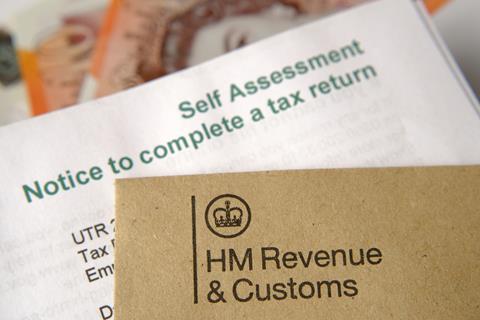But critics accuse it of ŌĆśivory tower thinkingŌĆÖ over disputes resolution claims
The government has accepted all of the recommendations of a public accounts committee (PAC) report which criticised its roll-out of tax reforms for freelancers.
Reforms to IR35 tax rules were designed to punish ŌĆ£disguisedŌĆØ employment, where the contractor could provide similar services within the rules of a limited company but pay less tax as a freelancer.
Implemented in 2017, the reforms, which moved responsibility for assessing the tax status of contractors from the contractor themselves to the businesses engaging their services, were initially limited to the public sector.

The PAC report, published in May, found ŌĆ£widespread non-complianceŌĆØ with more than ┬Ż250m owed in back taxes, accusing HMRC of rushing the reformsŌĆÖ implementation.
It claimed that hiring organisations were unable to properly assess workersŌĆÖ statuses, workers could not challenge incorrect determinations and lack of good data and legislative provisions were leading HMRC to tax the same income twice.
The reforms were finally extended to the private sector last year, after being delayed by the pandemic, and have caused concern in the construction industry.
>>> Firms flouting IR35 tax rules face multi-million pound penalties as grace period ends
Last month it emerged that HS2 had set aside a ┬Ż9.5m provision after getting its tax status wrong under the new rules.
The government agreed with the six committee recommendations, which included improvements to guidance and self-assessment tools and research into the impacts of the reforms on contractors and labour markets.
However, it disputed the PACŌĆÖs conclusions that high levels of non-compliance reflect poor implementation or that HMRC was not doing enough to understand the impact of the reforms.
The government agreed with the committeeŌĆÖs recommendation that HMRC should ensure there is a fast and independent process for contractors to resolve disputes over status determinations but insisted there were established appeal routes for those who disagree with their assessments.
Dave Chaplin, chief executive of compliance firm IR35 Shield, said this claim demonstrated ŌĆ£ivory tower thinkingŌĆØ.
ŌĆ£To suggest a worker can seek to reclaim monies from an incorrect assessment via the self-assessment tax system is misguided, because the worker cannot reclaim the bulk of the deducted monies, which is employersŌĆÖ NI,ŌĆØ he said.
ŌĆ£To suggest the worker can appeal to a tax tribunal is absurd, because the cost of doing so will far outweigh the tax and could take up to 10 years to resolve as we have seen happen.
ŌĆ£The governmentŌĆÖs comments claiming there are ŌĆśappeal routesŌĆÖ is impractical nonsense and highlights the impediment to natural justice inherent in the IR35 reforms.ŌĆØ
A target implementation date of December 2023 was set for five of the six recommendations.




























No comments yet